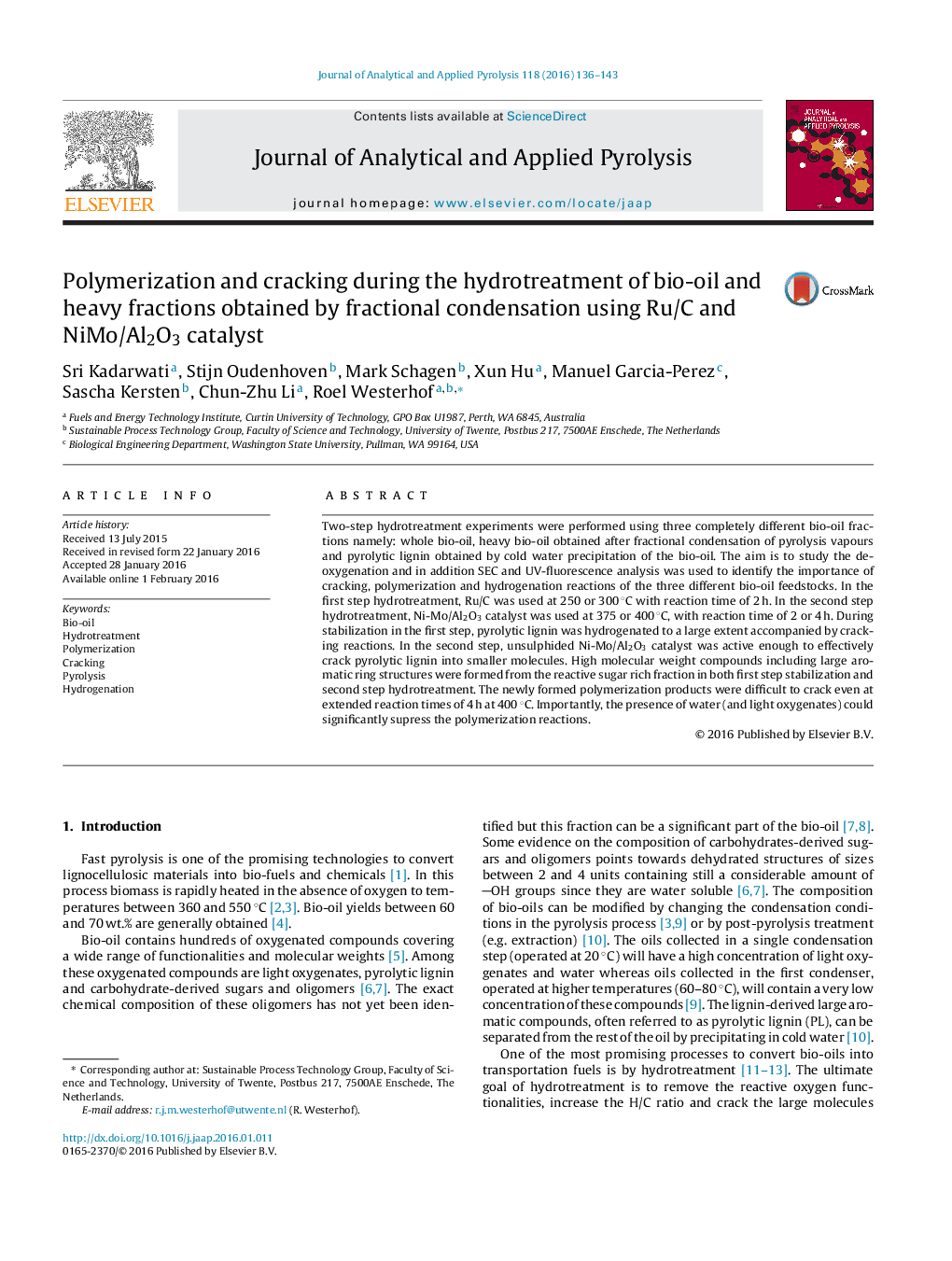| کد مقاله | کد نشریه | سال انتشار | مقاله انگلیسی | نسخه تمام متن |
|---|---|---|---|---|
| 1198256 | 1492959 | 2016 | 8 صفحه PDF | دانلود رایگان |

• Oils produced by fractional condensation can be hydrotreated.
• The sugar rich fraction has the highest tendency to polymerize during stabilization.
• The newly formed polymerization products are difficult to hydrocrack.
• Water (and/or light oxygenates) significantly suppresses polymerization of sugars.
Two-step hydrotreatment experiments were performed using three completely different bio-oil fractions namely: whole bio-oil, heavy bio-oil obtained after fractional condensation of pyrolysis vapours and pyrolytic lignin obtained by cold water precipitation of the bio-oil. The aim is to study the de-oxygenation and in addition SEC and UV-fluorescence analysis was used to identify the importance of cracking, polymerization and hydrogenation reactions of the three different bio-oil feedstocks. In the first step hydrotreatment, Ru/C was used at 250 or 300 °C with reaction time of 2 h. In the second step hydrotreatment, Ni-Mo/Al2O3 catalyst was used at 375 or 400 °C, with reaction time of 2 or 4 h. During stabilization in the first step, pyrolytic lignin was hydrogenated to a large extent accompanied by cracking reactions. In the second step, unsulphided Ni-Mo/Al2O3 catalyst was active enough to effectively crack pyrolytic lignin into smaller molecules. High molecular weight compounds including large aromatic ring structures were formed from the reactive sugar rich fraction in both first step stabilization and second step hydrotreatment. The newly formed polymerization products were difficult to crack even at extended reaction times of 4 h at 400 °C. Importantly, the presence of water (and light oxygenates) could significantly supress the polymerization reactions.
Journal: Journal of Analytical and Applied Pyrolysis - Volume 118, March 2016, Pages 136–143